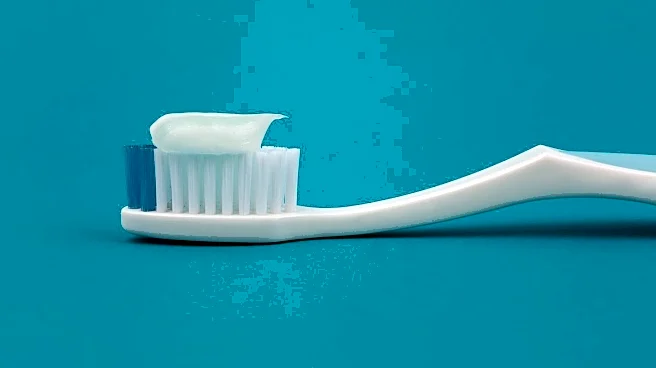What's Happening?
An international team led by researchers at the University of Nottingham has developed a gel capable of regrowing tooth enamel. This innovative solution mimics the natural process of enamel formation,
using proteins called elastin-like recombinamers (ELRs) to create a synthetic scaffold that encourages the growth of new enamel crystals. The gel can fill cracks in teeth and be applied to exposed dentine, potentially preventing tooth decay. The research, published in Nature Communications, shows that the regenerated enamel behaves like natural enamel under conditions simulating real-life scenarios such as brushing and chewing.
Why It's Important?
This development represents a significant advancement in dental care, offering a potential solution to the widespread issue of tooth decay. The ability to regrow enamel could reduce the need for traditional dental treatments, such as fillings and crowns, and improve oral health outcomes. The gel's ease of application and effectiveness in laboratory tests suggest it could become a practical tool for dentists, enhancing patient care and reducing dental treatment costs. The research team has founded a start-up to further develop and commercialize this technology, indicating its potential impact on the dental industry.
What's Next?
The next step for researchers is to conduct clinical trials to test the gel's safety and effectiveness in human mouths. Successful trials could lead to regulatory approval and widespread adoption in dental practices. The development of this gel also opens the door for further innovations in regenerative dental treatments, potentially leading to the ability to grow entire teeth in laboratory settings. As research progresses, the dental industry may see a shift towards more regenerative and less invasive treatment options.










